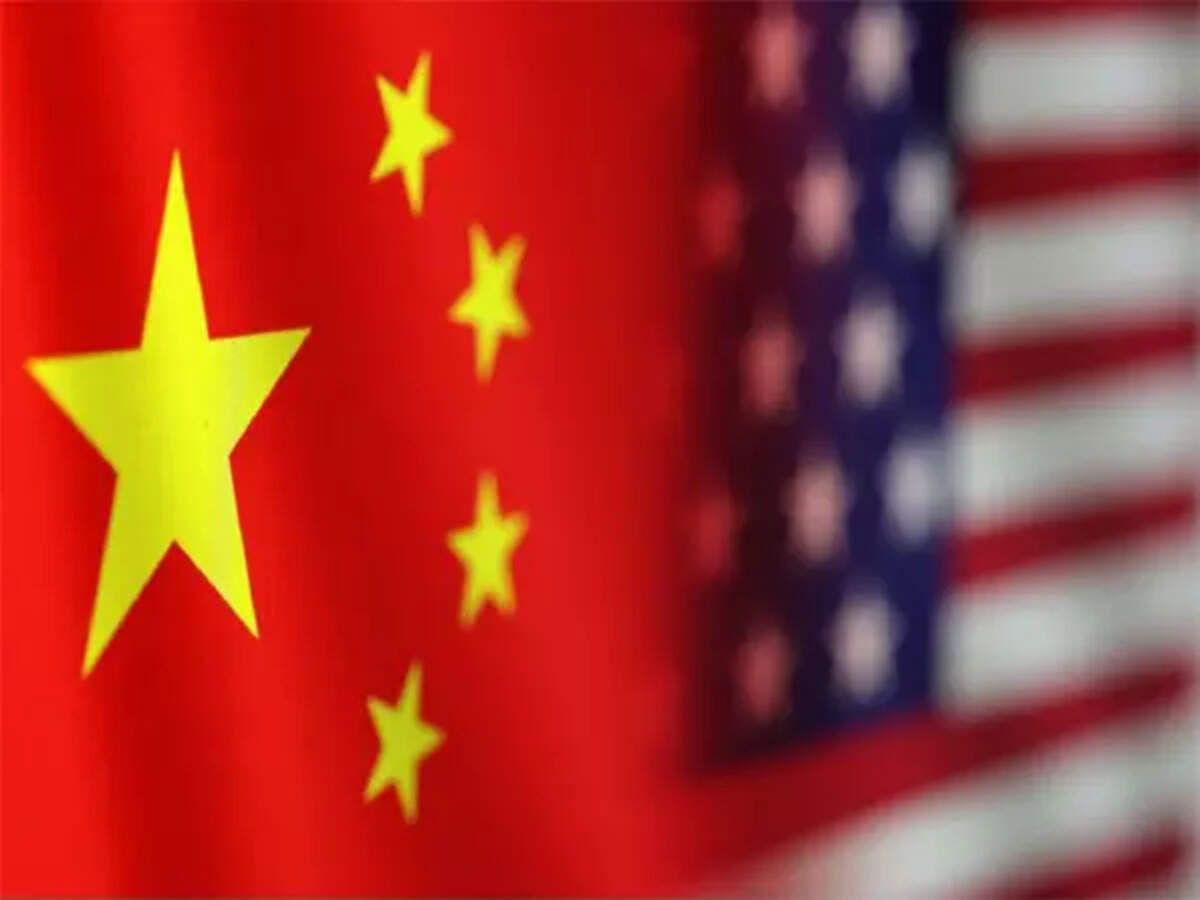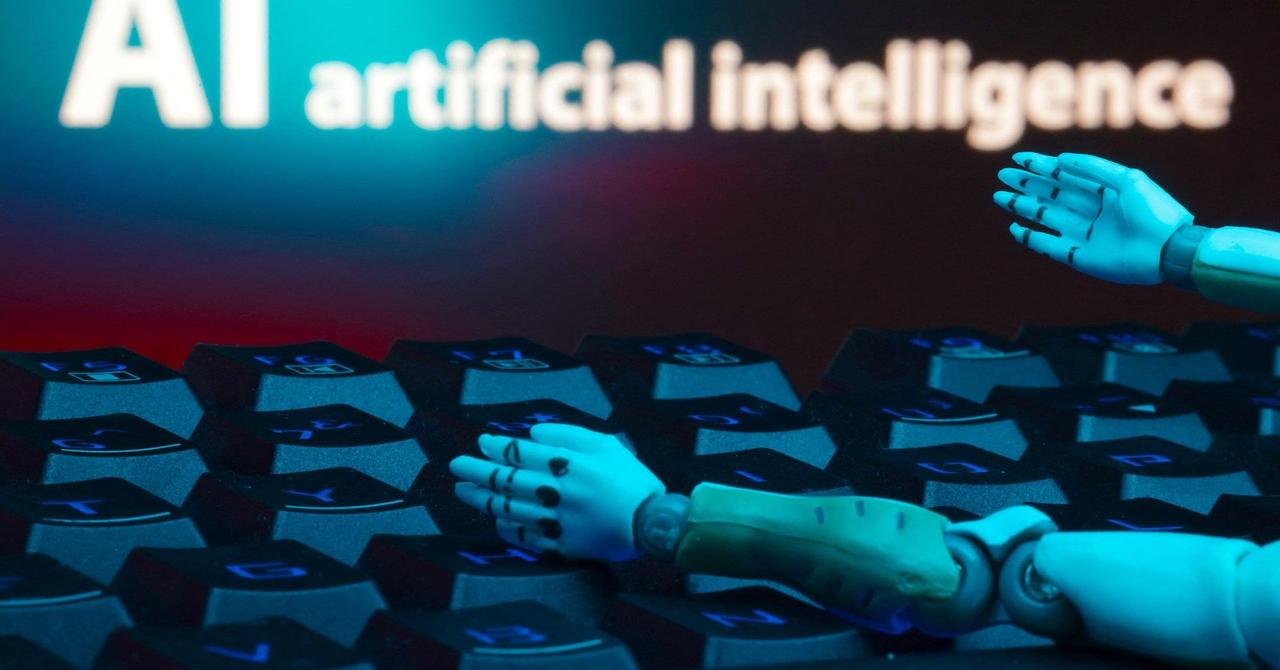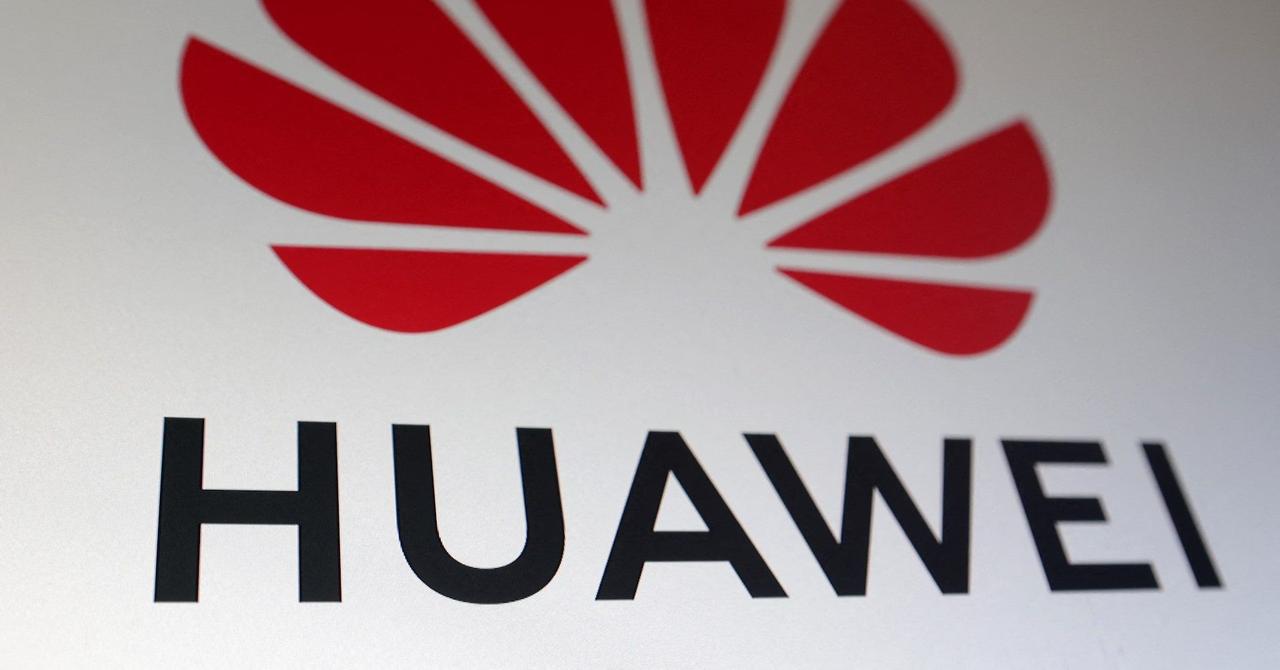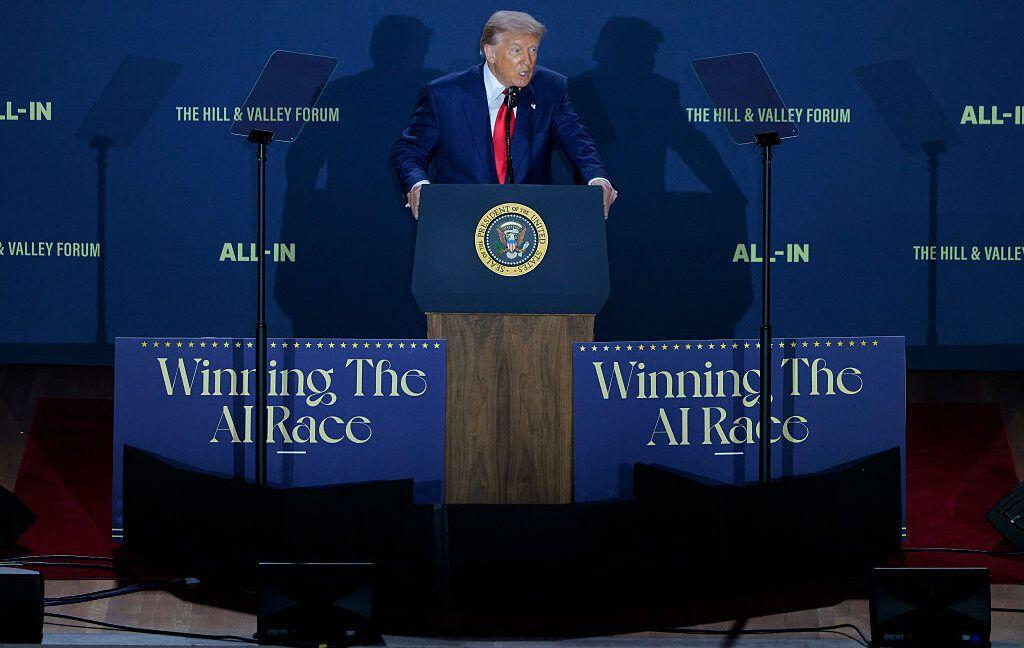US Government Scrutinizes Chinese AI Models for Ideological Bias
3 Sources
3 Sources
[1]
US scrutinizes Chinese AI for ideological bias, memo shows
WASHINGTON, July 9 (Reuters) - American officials have quietly been grading Chinese artificial intelligence programs on their ability to mold their output to the Chinese Communist Party's official line, according to a memo reviewed by Reuters. U.S. State and Commerce Department officials are working together on the effort, which operates by feeding the programs standardized lists of questions in Chinese and in English and scoring their output, the memo showed. The evaluations, which have not previously been reported, are another example of how the U.S. and China are competing over the deployment of large language models, sometimes described as artificial intelligence (AI). The integration of AI into daily life means that any ideological bias in these models could become widespread. One State Department official said their evaluations could eventually be made public in a bid to raise the alarm over ideologically slanted AI tools being deployed by America's chief geopolitical rival. The State and Commerce Departments did not immediately return messages seeking comment on the effort; China's embassy in Washington did not immediately return an email. Beijing makes no secret of policing Chinese models' output to ensure they adhere to the one-party state's "core socialist values." In practice, that means ensuring the models do not inadvertently criticize the government or stray too far into sensitive subjects like China's 1988 crackdown on pro-democracy protests at Tiananmen Square, or the subjugation of its minority Uyghur population. The memo reviewed by Reuters shows that U.S. officials have recently been testing models, including Alibaba's Qwen 3 and DeepSeek's R1, and then scoring the models according to whether they engaged with the questions or not, and how closely their answers aligned with Beijing's talking points when they did engage. According to the memo, the testing showed that Chinese AI tools were significantly more likely to align their answers with Beijing's talking points than their U.S. counterparts, for example by backing China's claims over the disputed islands in the South China Sea. DeepSeek's model, the memo said, frequently used boilerplate language praising Beijing's commitment to "stability and social harmony" when asked about sensitive topics such as Tiananmen Square. The memo said each new iteration of Chinese models showed increased signs of censorship, suggesting that Chinese AI developers were increasingly focused on making sure their products toed Beijing's line. DeepSeek and Alibaba did not immediately return messages seeking comment. The ability of AI models' creators to tilt the ideological playing field of their chatbots has emerged as a key concern, and not just for Chinese AI models. When billionaire Elon Musk - who has frequently championed far-right causes - announced changes to his xAI chatbot, Grok, the model began endorsing Hitler and attacking Jews in conspiratorial and bigoted terms. In a statement posted to X, Musk's social media site, on Tuesday, Grok said it was "actively working to remove the inappropriate posts." On Wednesday, X's CEO Linda Yaccarino said she would step down from her role. No reason was given for the surprise departure. Reporting by Raphael Satter Editing by Marguerita Choy Our Standards: The Thomson Reuters Trust Principles., opens new tab Suggested Topics:Cybersecurity Raphael Satter Thomson Reuters Reporter covering cybersecurity, surveillance, and disinformation for Reuters. Work has included investigations into state-sponsored espionage, deepfake-driven propaganda, and mercenary hacking.
[2]
US Scrutinizes Chinese AI for Ideological Bias, Memo Shows
WASHINGTON (Reuters) -American officials have quietly been grading Chinese artificial intelligence programs on their ability to mold their output to the Chinese Communist Party's official line, according to a memo reviewed by Reuters. U.S. State and Commerce Department officials are working together on the effort, which operates by feeding the programs standardized lists of questions in Chinese and in English and scoring their output, the memo showed. The evaluations, which have not previously been reported, are another example of how the U.S. and China are competing over the deployment of large language models, sometimes described as artificial intelligence (AI). The integration of AI into daily life means that any ideological bias in these models could become widespread. One State Department official said their evaluations could eventually be made public in a bid to raise the alarm over ideologically slanted AI tools being deployed by America's chief geopolitical rival. The State and Commerce Departments did not immediately return messages seeking comment on the effort; China's embassy in Washington did not immediately return an email. Beijing makes no secret of policing Chinese models' output to ensure they adhere to the one-party state's "core socialist values." In practice, that means ensuring the models do not inadvertently criticize the government or stray too far into sensitive subjects like China's 1988 crackdown on pro-democracy protests at Tiananmen Square, or the subjugation of its minority Uyghur population. The memo reviewed by Reuters shows that U.S. officials have recently been testing models, including Alibaba's Qwen 3 and DeepSeek's R1, and then scoring the models according to whether they engaged with the questions or not, and how closely their answers aligned with Beijing's talking points when they did engage. According to the memo, the testing showed that Chinese AI tools were significantly more likely to align their answers with Beijing's talking points than their U.S. counterparts, for example by backing China's claims over the disputed islands in the South China Sea. DeepSeek's model, the memo said, frequently used boilerplate language praising Beijing's commitment to "stability and social harmony" when asked about sensitive topics such as Tiananmen Square. The memo said each new iteration of Chinese models showed increased signs of censorship, suggesting that Chinese AI developers were increasingly focused on making sure their products toed Beijing's line. DeepSeek and Alibaba did not immediately return messages seeking comment. The ability of AI models' creators to tilt the ideological playing field of their chatbots has emerged as a key concern, and not just for Chinese AI models. When billionaire Elon Musk - who has frequently championed far-right causes - announced changes to his xAI chatbot, Grok, the model began endorsing Hitler and attacking Jews in conspiratorial and bigoted terms. In a statement posted to X, Musk's social media site, on Tuesday, Grok said it was "actively working to remove the inappropriate posts." On Wednesday, X's CEO Linda Yaccarino said she would step down from her role. No reason was given for the surprise departure. (Reporting by Raphael SatterEditing by Marguerita Choy)
[3]
US scrutinises Chinese AI for ideological bias, memo shows - The Economic Times
American officials have quietly been grading Chinese artificial intelligence programs on their ability to mold their output to the Chinese Communist Party's official line, according to a memo reviewed by Reuters. US State and Commerce Department officials are working together on the effort, which operates by feeding the programs standardized lists of questions in Chinese and in English and scoring their output, the memo showed. The evaluations, which have not previously been reported, are another example of how the US and China are competing over the deployment of large language models, sometimes described as artificial intelligence (AI). The integration of AI into daily life means that any ideological bias in these models could become widespread. One State Department official said their evaluations could eventually be made public in a bid to raise the alarm over ideologically slanted AI tools being deployed by America's chief geopolitical rival. The State and Commerce Departments did not immediately return messages seeking comment on the effort; China's embassy in Washington did not immediately return an email. Beijing makes no secret of policing Chinese models' output to ensure they adhere to the one-party state's "core socialist values." In practice, that means ensuring the models do not inadvertently criticize the government or stray too far into sensitive subjects like China's 1988 crackdown on pro-democracy protests at Tiananmen Square, or the subjugation of its minority Uyghur population. The memo reviewed by Reuters shows that U.S. officials have recently been testing models, including Alibaba's Qwen 3 and DeepSeek's R1, and then scoring the models according to whether they engaged with the questions or not, and how closely their answers aligned with Beijing's talking points when they did engage. According to the memo, the testing showed that Chinese AI tools were significantly more likely to align their answers with Beijing's talking points than their U.S. counterparts, for example by backing China's claims over the disputed islands in the South China Sea. DeepSeek's model, the memo said, frequently used boilerplate language praising Beijing's commitment to "stability and social harmony" when asked about sensitive topics such as Tiananmen Square. The memo said each new iteration of Chinese models showed increased signs of censorship, suggesting that Chinese AI developers were increasingly focused on making sure their products toed Beijing's line. DeepSeek and Alibaba did not immediately return messages seeking comment. The ability of AI models' creators to tilt the ideological playing field of their chatbots has emerged as a key concern, and not just for Chinese AI models. When billionaire Elon Musk - who has frequently championed far-right causes - announced changes to his xAI chatbot, Grok, the model began endorsing Hitler and attacking Jews in conspiratorial and bigoted terms. In a statement posted to X, Musk's social media site, on Tuesday, Grok said it was "actively working to remove the inappropriate posts." On Wednesday, X's CEO Linda Yaccarino said she would step down from her role. No reason was given for the surprise departure.
Share
Share
Copy Link
American officials are evaluating Chinese AI programs for alignment with Communist Party ideology, raising concerns about the global impact of biased AI models.
US Government's Covert Evaluation of Chinese AI
In a previously unreported initiative, American officials have been quietly assessing Chinese artificial intelligence (AI) programs for their alignment with the Chinese Communist Party's official ideology. This effort, involving both the U.S. State and Commerce Departments, involves feeding standardized questions in Chinese and English to these AI models and scoring their responses
1
.Methodology and Findings
The evaluation process focuses on popular Chinese AI models such as Alibaba's Qwen 3 and DeepSeek's R1. Officials score these models based on their engagement with the questions and how closely their answers align with Beijing's official stance
2
.Key findings from the memo reviewed by Reuters include:
- Chinese AI tools are significantly more likely to align their answers with Beijing's talking points compared to their U.S. counterparts.
- These models often support China's claims over disputed territories, such as islands in the South China Sea.
- When addressing sensitive topics like the Tiananmen Square protests, models like DeepSeek's frequently use boilerplate language praising Beijing's commitment to "stability and social harmony"
3
.
Implications and Concerns

Source: ET
The U.S. government's scrutiny of Chinese AI models highlights the growing competition between the two nations in the field of large language models. As AI becomes increasingly integrated into daily life, there are concerns that ideological biases in these models could have far-reaching consequences
1
.A State Department official suggested that these evaluations might eventually be made public to raise awareness about the deployment of ideologically slanted AI tools by China, which is seen as America's chief geopolitical rival
2
.Related Stories
China's AI Censorship

Source: Reuters
Beijing openly acknowledges its efforts to ensure that Chinese AI models adhere to the state's "core socialist values." This involves preventing the models from criticizing the government or addressing sensitive topics such as the 1988 Tiananmen Square crackdown or the treatment of the Uyghur minority
1
.The memo suggests that each new iteration of Chinese AI models shows increased signs of censorship, indicating that developers are focusing more on aligning their products with Beijing's official stance
3
.Global Concerns Over AI Bias
The issue of ideological bias in AI is not limited to Chinese models. Recent incidents involving Elon Musk's xAI chatbot, Grok, which began endorsing Hitler and expressing anti-Semitic views after certain changes, highlight the global nature of this concern
1
.As the deployment of AI continues to expand globally, the ability of AI creators to influence the ideological leanings of their models remains a critical issue for policymakers, tech companies, and users alike.
References
Summarized by
Navi
Related Stories
Recent Highlights
1
OpenAI secures $110 billion funding round from Amazon, Nvidia, and SoftBank at $730B valuation
Business and Economy

2
Trump orders federal agencies to ban Anthropic after Pentagon dispute over AI surveillance
Policy and Regulation

3
Google releases Nano Banana 2 AI image model with Pro quality at Flash speed
Technology








